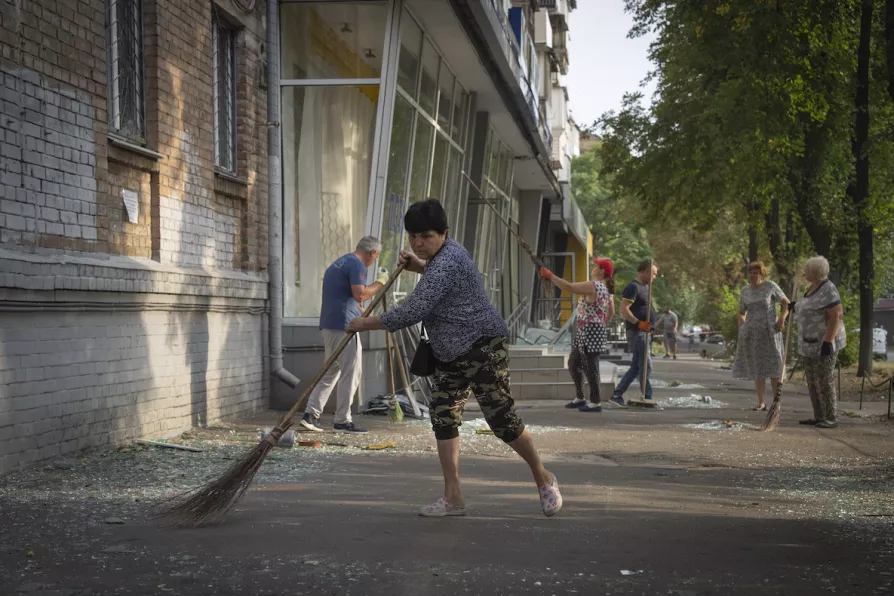Does widespread and uncontrolled use of AI change our relationship with scientific meaning? Or with each other? ask ROX MIDDLETON, LIAM SHAW and MIRIAM GAUNTLETT

 DESTRUCTION: Local residents clean the street from broken glass that fell down from the windows of their apartments and shops after a Russian rocket attack in Kiev, Ukraine
DESTRUCTION: Local residents clean the street from broken glass that fell down from the windows of their apartments and shops after a Russian rocket attack in Kiev, Ukraine
THE official Ministry of Defence line on the demise of Wagner Group boss Yevgeny Prigozhin’s plane — that Prigozhin’s death will have a deeply destabilising effect on the Wagner Group — is true only if Wagner was and is an entity separate from the Russian state.
The MoD echoes something of Vladimir Putin’s own evaluation of his former ally by lauding his personal attributes of hyper-activity, exceptional audacity and a drive for results.
But in overreaching himself in his dash on Moscow Prigozhin demonstrated the reality that the state cannot tolerate a challenge to its monopoly of force.

While 69 per cent of Ukrainians want negotiated peace, Western leaders are cynically prolonging the war for their own strategic and economic goals, to the immense detriment of Ukraine and Europe, write BOB ORAM and MAGGIE SIMPSON

Washington plays innocent bystander while pouring weapons and intelligence into Ukraine, just as it enables the Gaza genocide — but every US escalation leaves Ukraine weaker than the neutrality deal rejected in 2022, argue MEDEA BENJAMIN and NICOLAS JS DAVIES

In the first half of a two-part article, PETER MERTENS looks at how Nato’s €800 billion ‘Readiness 2030’ plan serves Washington’s pivot to the Pacific, forcing Europeans to dismantle social security and slash pensions to fund it










